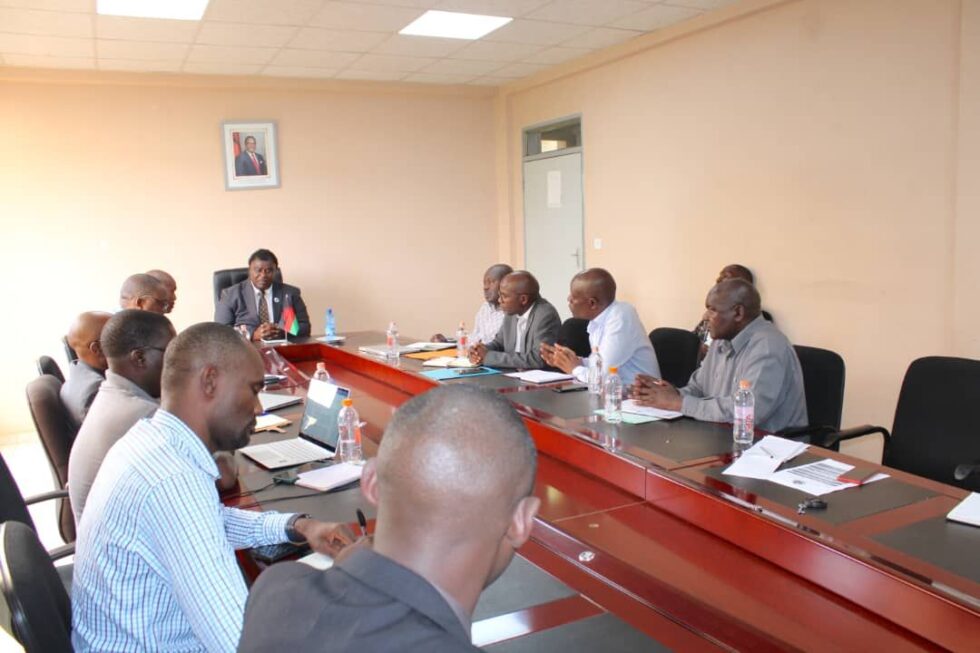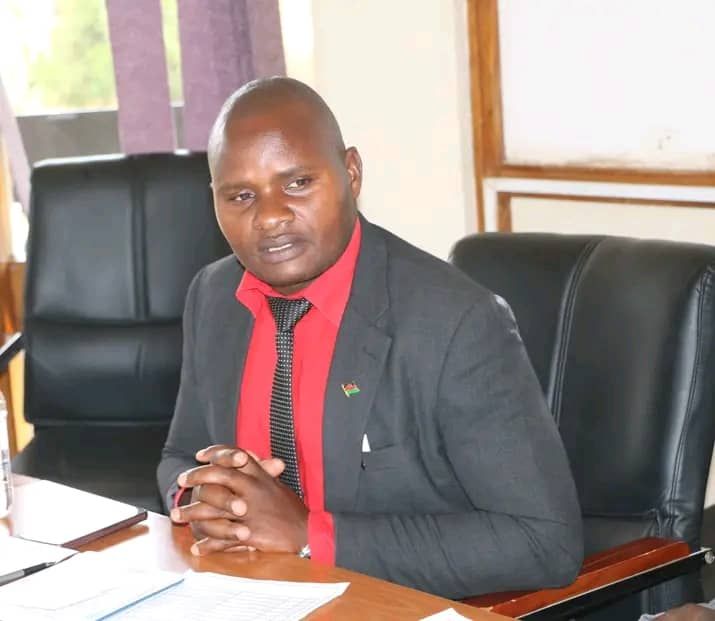By Wadza Botomani
In a significant move to stimulate Malawi’s mining sector, Minister of Mining, Dr. Kenneth Zikhale Reeves Ng’oma, convened a meeting with senior officials from the Ministry on Friday, January 17th. The gathering aimed to strategize on unlocking the country’s vast mineral potential in line with the transformative Agriculture, Tourism, and Mining (ATM) Strategy introduced by the government.
During the meeting, Ng’oma underscored the importance of aligning mining development strategies with national interests to foster economic revitalization. He emphasized the need for a united workforce capable of addressing the challenges the sector faces. “Malawi is endowed with a wealth of precious minerals that have yet to be fully explored,” he remarked, highlighting the opportunities that lie ahead.

The Minister’s address also included a firm commitment to tackling illegal mining activities and mineral smuggling, which have plagued the industry for years. These challenges not only undermine the country’s economic potential but also pose significant risks to regulatory compliance and environmental sustainability.
Ng’oma’s leadership comes at a crucial time as he has recently taken over the Ministry following a cabinet reshuffle by President Lazarus Chakwera. His appointment has sparked optimism among stakeholders in the mining sector, who are eager to see decisive action and clear direction from the government.
As part of the Ministry’s initiative, plans for a mining symposium were unveiled, aimed at promoting dialogue among industry players, government officials, and stakeholders. This symposium is expected to provide a platform for discussing innovative mining practices, investment opportunities, and strategies to enhance the sector’s contribution to the national economy.
“To create a robust mining industry, we need periodic trainings to promote the sector,” Ng’oma concluded, reiterating the importance of capacity building and continuous learning for staff and stakeholders involved in mining. The Minister’s vision aligns with the broader goals of the ATM Strategy, which seeks to integrate mining with agriculture and tourism to create a more diversified economic base for Malawi.
The mining symposium is poised to attract local and international investors, researchers, and policy-makers, potentially leading to collaborative efforts that could transform the mining landscape in Malawi. The symposium will also serve as a venue for showcasing the country’s mineral resources, which include rare earth elements, coal, and precious stones, thus positioning Malawi as an emerging player in the global mining industry.
With the Minister at the helm, the Ministry of Mining is set to embark on a new chapter aimed at maximizing the country’s mineral wealth, creating jobs, and contributing significantly to Malawi’s economic growth. Stakeholders are eager to see how Ng’oma’s strategies will unfold in the coming months, as the nation looks to harness its mining potential to uplift communities and foster sustainable development across the country.








